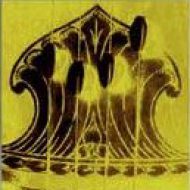Custom SafeSearch – press and websites For up-to-date information from several leading periodicals and other websites, simply type one or several keywords such as a personal name or institution you want to learn more about (e.g. “carnatic”, “karnatak composer”, “hindustani musician”, “ragamalika”); optionally add a city or state (e.g. “Madurai singer”, “Karnataka violinist”, “Trivandrum music festival”, “Chennai music season”): …
Category archives: Resources
Musical map | Familiarize yourself with the world of South Indian classical music
To familiarize yourself with the world of Carnatic music click on any “pin” on the interactive map for more informationcheck the textbook entries for all the names and musical forms mentioned in the accompanying text boxeszoom in and out on the map by clicking on the + / – control buttonsdisplay more options (click the menu button on the left top of the …
Continue reading “Musical map | Familiarize yourself with the world of South Indian classical music”
Interactive map – Free for all learners
A map created for students keen on understanding the history, customs and performance practices Carnatic music: the places where composers, musicians and scholars lived; the place references woven into some of their song lyrics as well as major institutions and music festivals. Learn more >>
